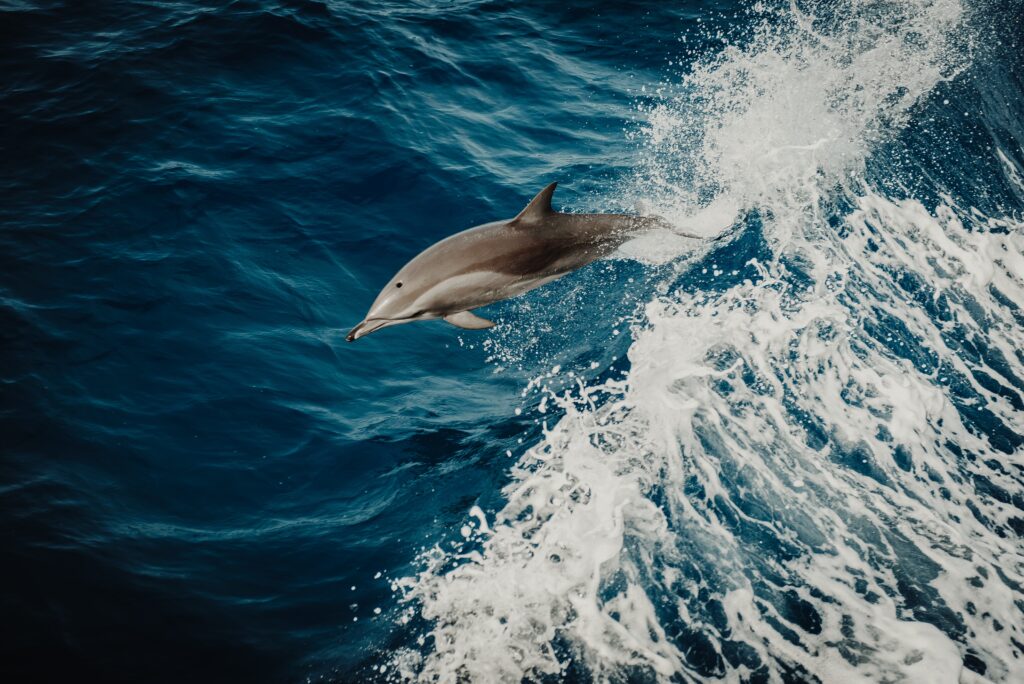The Palm Beach Post | Whether it’s dolphins or dogs, don’t blame animal cruelty on tradition

By: Robin Ganzert
Passengers aboard the cruise ship Ambition recently were horrified by a bloody scene unfolding off the Faroe Islands. More than 40 pilot whales—which can grow to 24 feet in length—were being hunted and slaughtered. The hunters drove the whales into the shallow bay where the animals were beached and then killed with fishing knives.
The tragic event was not a result of illegal fishing but was a government-sanctioned activity. Roughly 650 pilot whales have been killed in the area this year alone. More than 500 dolphins have fallen victim to the same hunting practice since May.
The local government argues the practice is part of the community’s cultural heritage, saying the “Faroese have eaten pilot whale meat and blubber since they first settled the islands over a millennia ago.” But this is the 21st century and culture is no excuse for animal cruelty. It’s a lesson that needs to be taught on a global scale.
Around the world, smokescreens of tradition and culture are used to justify the inhumane treatment of animals.
Japanese fishermen kill hundreds of whales annually—a practice that dates back to the 12th century and is subsidized by the government. Bullfighting lives on in Spain, where matadors slowly kill bulls for public enjoyment. And rather than petering out, the number of bullfights taking place in the country is at a seven-year high.
Likewise, wet markets remain a commonality in parts of Asia — notably in China. Not only do the poor conditions and lack of oversight at these types of operations lend themselves to animal cruelty but the markets are breeding grounds for disease and perhaps the next pandemic.
In countries across Asia, including South Korea, China, and Vietnam, the cruel dog and cat meat trades persist. With much of this horrific industry operating in the shadows, the inhumane treatment of dogs and cats is too often the rule rather than the exception.
Keeping in touch with one’s history and culture is important. But that does not mean tradition is immune from the evolving moral standards of a modern society, our collective moral compass. We do not celebrate the Taliban’s archaic treatment of women, or the ritualistic sacrifices of ancient civilizations. Time ticks on and traditions need to evolve.
The United States and our allies not only have the responsibility to look inward and audit our own practices and traditions but to export the humane treatment of animals well beyond our borders. Animal welfare knows no geographical boundaries and should never be negotiated. Urging governments to outlaw whaling, unregulated wet markets plagued by cruelty, and forms of entertainment that leave animals dead or in severe distress would be a good first step.
International pressure campaigns should be another component. Historically, these efforts have been an important ingredient in baking lasting, positive change into a society. Global initiatives have helped spread democracy, fight pollution, promote women’s rights and even marshal opposition to unwarranted military aggression.
Now, governments and other influencers have the opportunity to embark on another campaign, for the sake of the animals with which we share the planet.
Tradition is a basic building block of society. We would be lost without it. But culture is no excuse for cruelty. Policymakers and cultural leaders need to take note. The time is now to end cruelty and abuse for people, animals, and the world we share. A world where we celebrate what it is to be humane is our hope.
Robin Ganzert, Ph.D., a Palm Beach resident, is president and CEO of American Humane. She is the author of “Mission Metamorphosis: Leadership for a Humane World.”